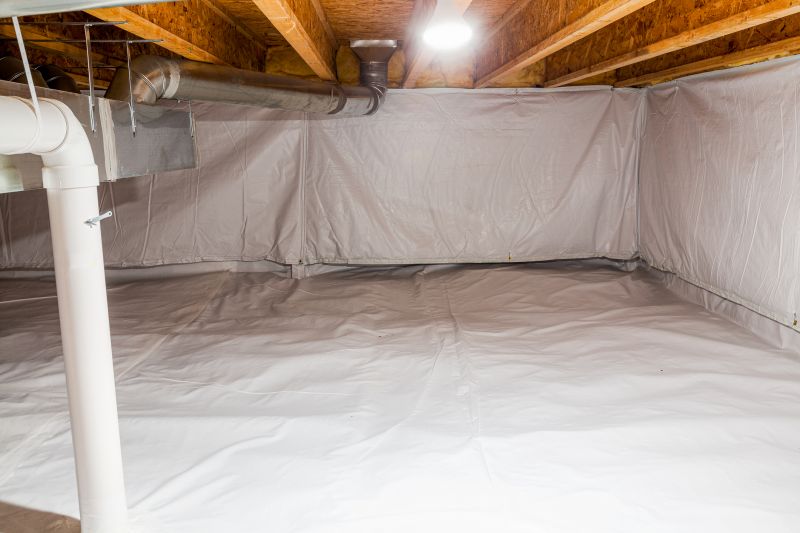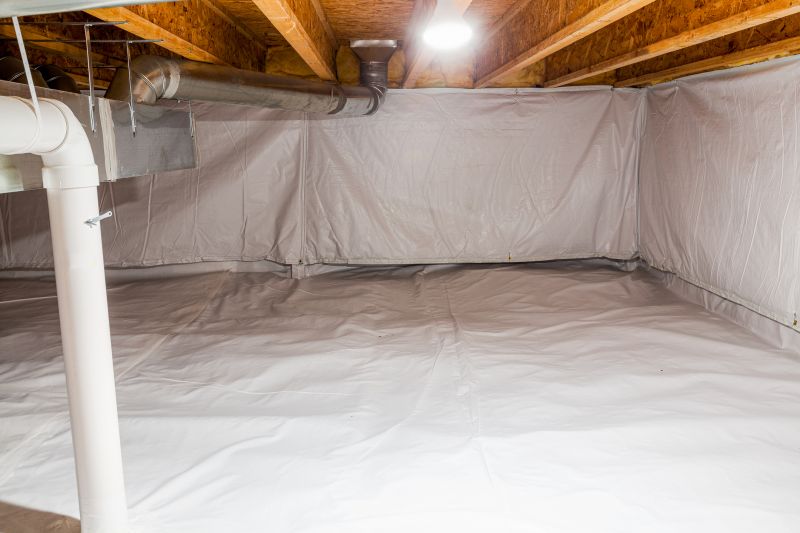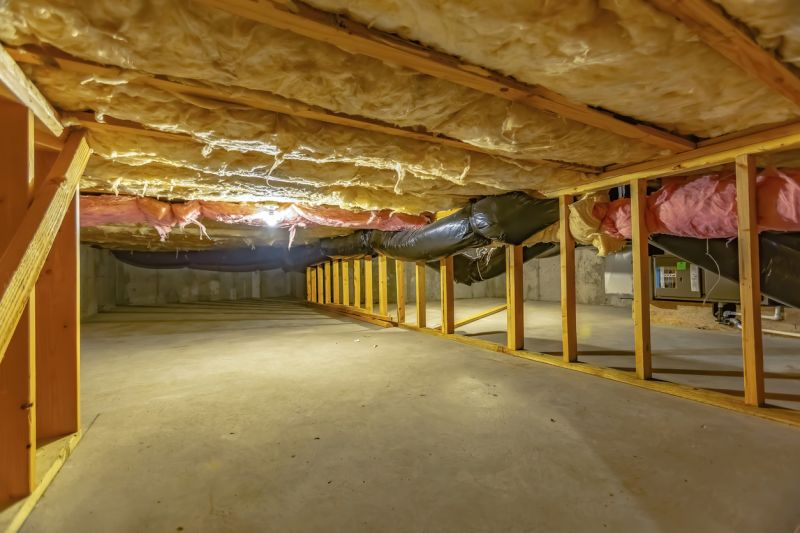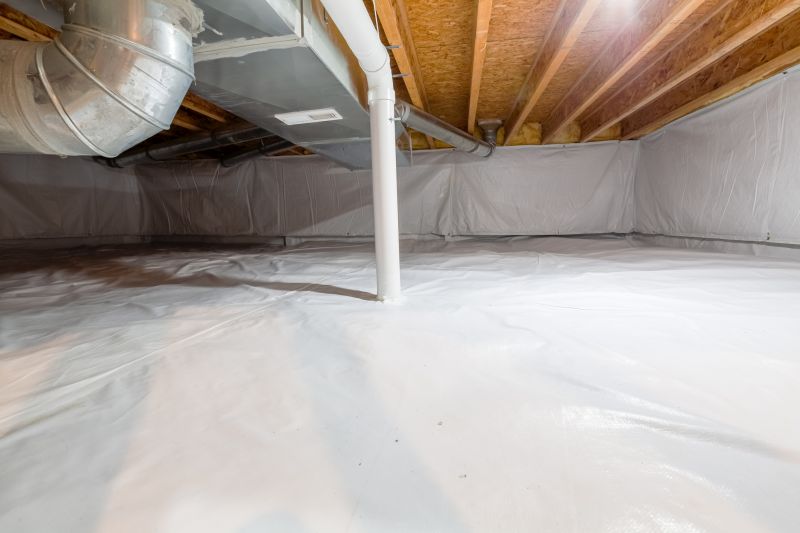Comprehensive Crawlspace Moisture Control
Crawlspace encapsulation is an essential process that involves sealing and insulating the crawlspace to prevent moisture intrusion, improve air quality, and protect the structural integrity of the building. Proper encapsulation can significantly reduce energy costs and eliminate common problems associated with unsealed crawlspaces.
Encapsulation prevents excess moisture from entering the crawlspace, reducing mold growth and wood rot which can compromise the building's foundation.
Sealing the crawlspace helps maintain consistent indoor temperatures, leading to lower heating and cooling costs.
Reducing mold and dust accumulation in the crawlspace minimizes airborne contaminants, promoting healthier indoor environments.
Encapsulation protects the foundation and supports long-term stability by preventing water damage and pest intrusion.

A fully sealed and insulated crawlspace showcasing the effectiveness of encapsulation techniques.

Interior view of a sealed crawlspace with vapor barrier and insulation properly installed.

Close-up of insulation and sealing materials used in the encapsulation process.

Crawlspace featuring sealed vents and moisture barriers for optimal protection.
Failing to encapsulate a crawlspace can lead to numerous issues including increased energy bills, mold growth, pest infestations, and structural deterioration. Without proper sealing, moisture can accumulate, leading to wood rot and compromised foundations. Studies indicate that encapsulation can reduce energy costs by up to 15 percent and eliminate up to 50 percent of indoor air pollutants originating from the crawlspace.
| Risks of Not Encapsulating | Benefits of Proper Encapsulation |
|---|---|
| Increased moisture leading to mold growth | Moisture control prevents mold and mildew |
| Higher energy costs due to air leaks | Enhanced energy efficiency and temperature regulation |
| Pest infestations such as termites and rodents | Sealed environment deters pests |
| Wood rot and structural damage | Protection of foundation and structural integrity |
| Poor indoor air quality | Healthier indoor environment with cleaner air |
| Unpleasant odors and humidity issues | Elimination of musty smells and humidity control |
| Potential health hazards from mold spores | Reduction of health risks associated with mold |
| Decreased property value over time | Maintains or increases property value |


